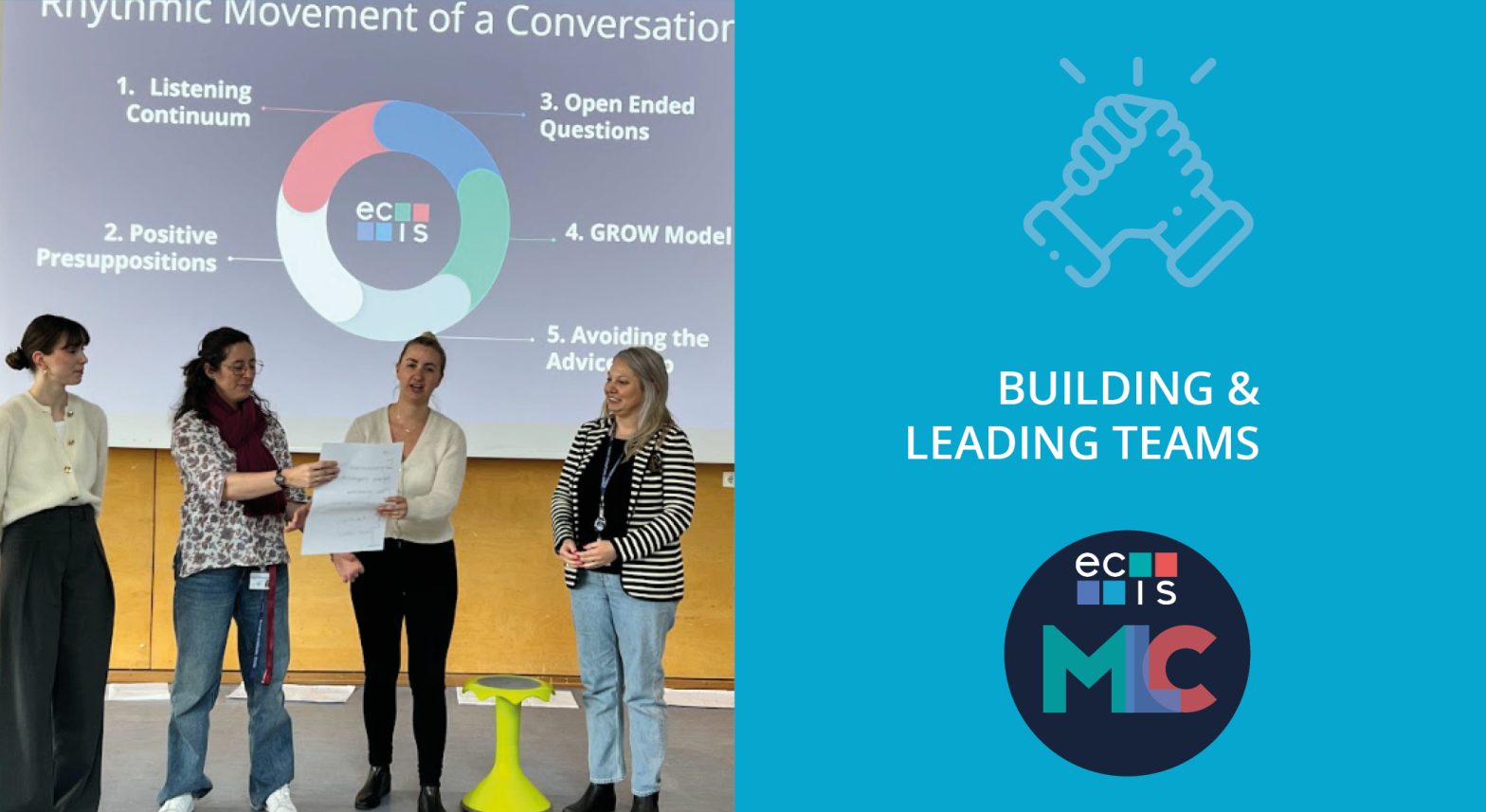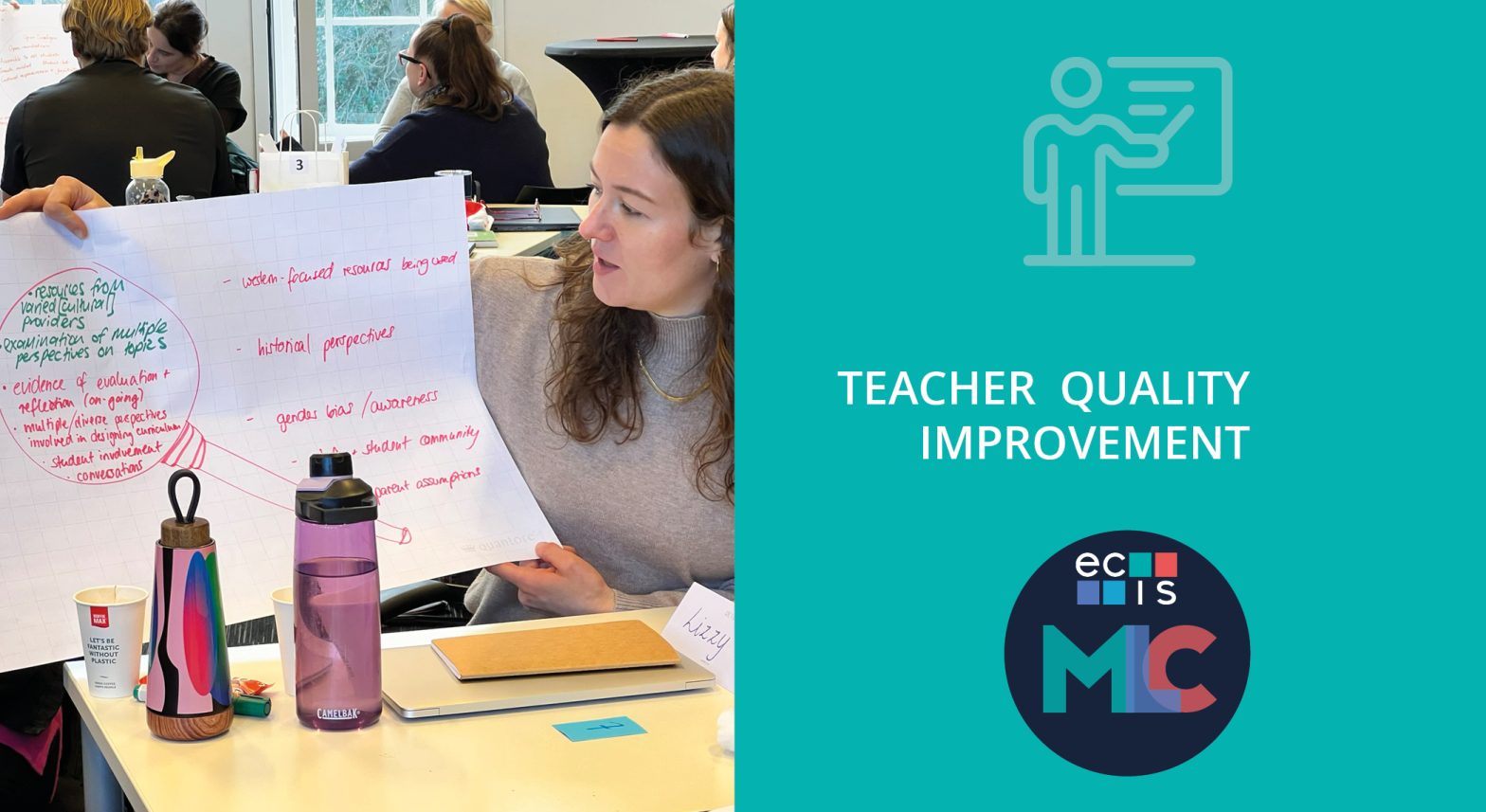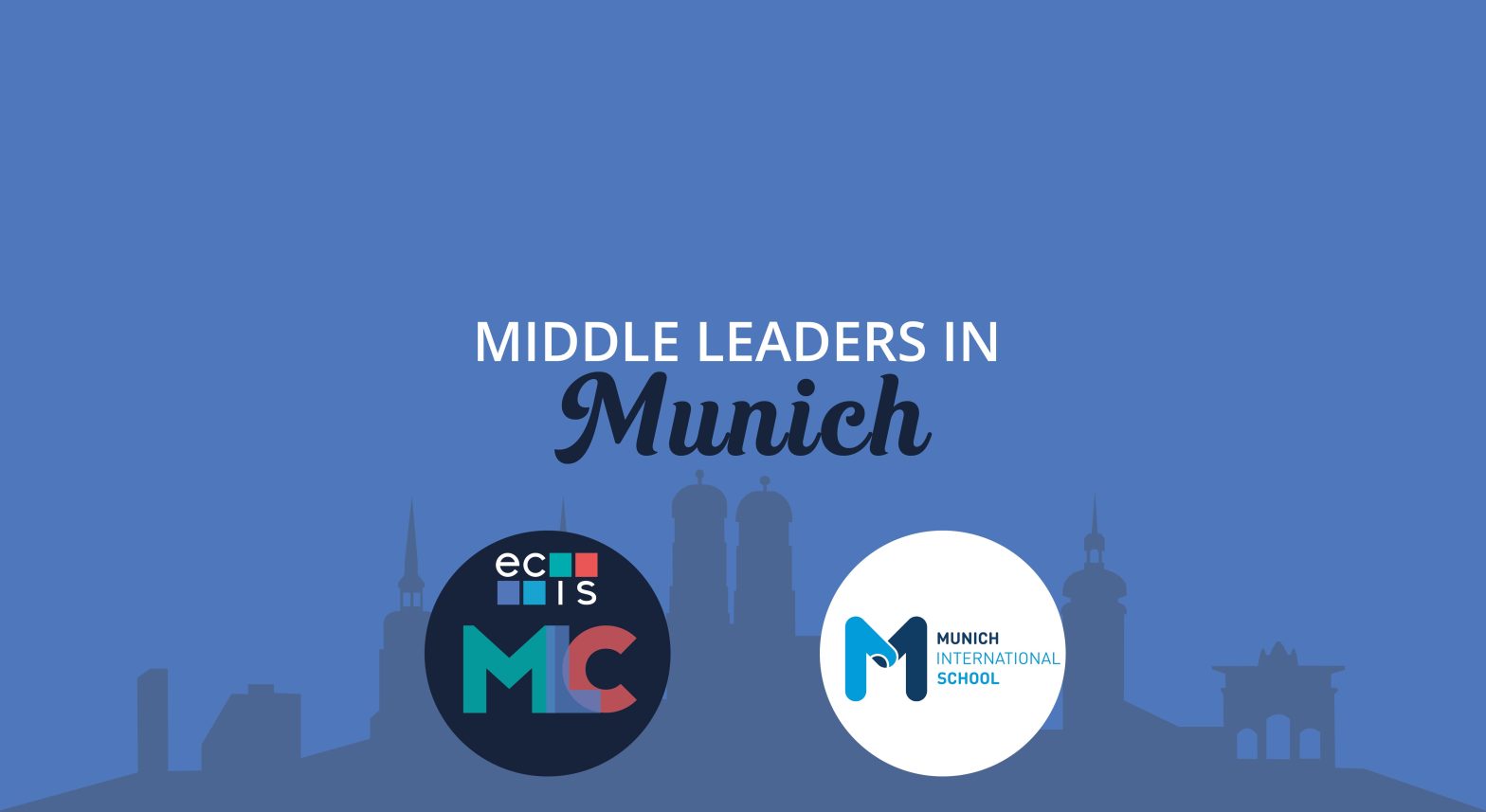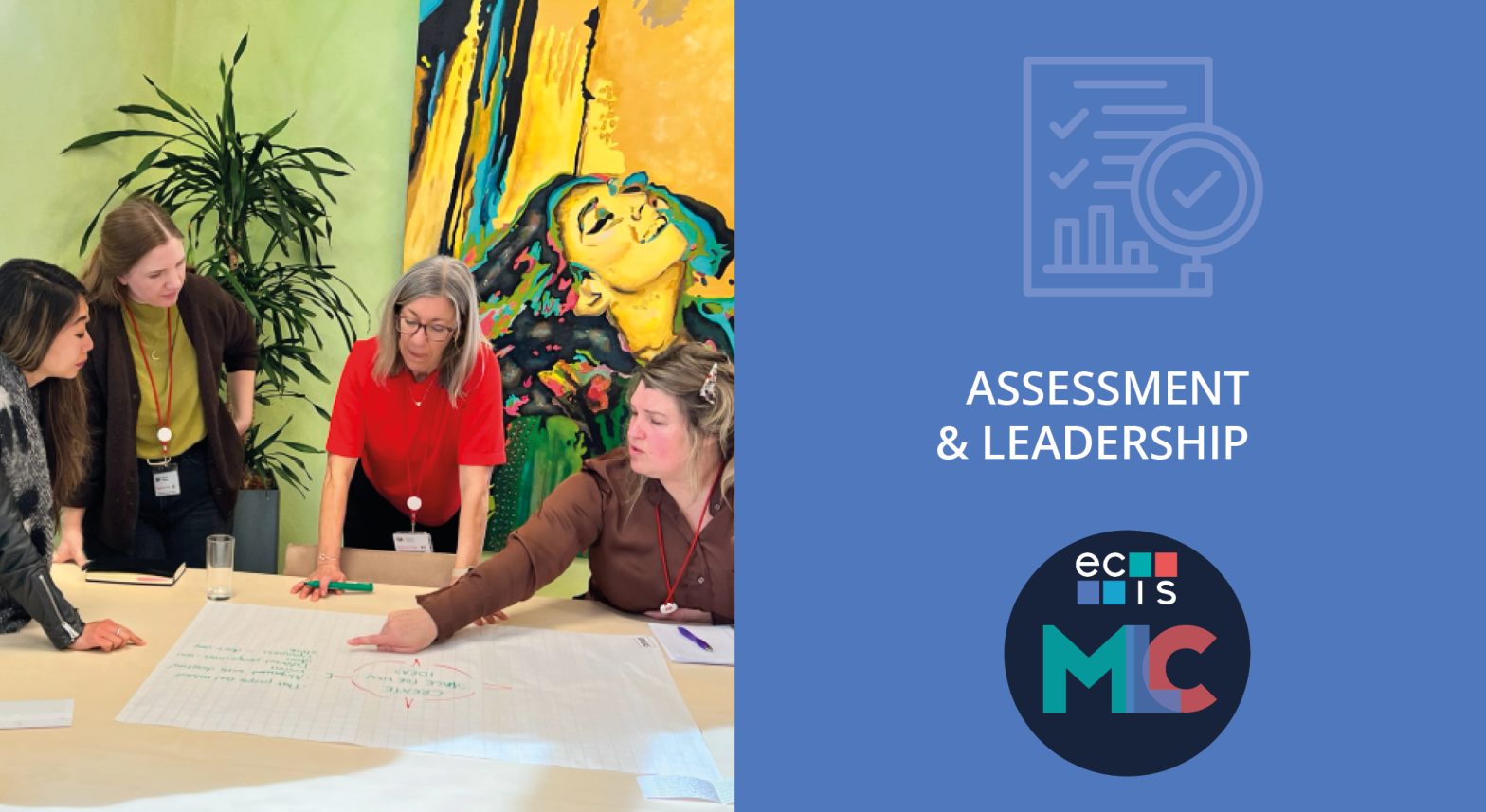SCHEDULED ONLINE COURSES | BESPOKE IN-PERSON AND ONLINE COURSES: 2025-2026
We define Middle Leaders as teachers and coordinators in schools (Preschool-Grade 12) who have a specific area of responsibility that involves leading and collaborating with teams. Middle Leaders are the change agents of a school; they work with teachers to ensure great learning happens. Effective professional learning builds on the competencies of Middle Leaders to support their roles and responsibilities within the context of their schools. These programmes are sustained and multidimensional to meet the array of needs of a Middle Leader. ECIS proudly provides a variety of courses designed to enhance the leadership abilities of Middle Leaders.
To earn the Middle Leader Certificate, participants complete four courses that can be delivered either on-site or online. These sessions are aimed at building the capacity of middle leaders and supporting a sustainable, ongoing professional learning journey. Additional development opportunities include access to a dedicated Middle Leader LinkedIn group, Middle Leader Cafés for informal dialogue, and a structured mentoring platform for ECIS member schools and affiliations.
New for 2025-2026: Every School Membership includes one free place (per-school) on an online Middle Leader Course, worth £350.
PLUS: A COURSE WITH DISTINCTION
ECIS proudly introduces the Middle Leader Certificate of Distinction, an advanced certification created in response to feedback from Middle Leaders eager to continue their learning journey and gain additional insights as leaders in their schools. This advanced certificate builds on the foundational ECIS Middle Leader Certificate, requiring participants to complete an additional three MLC courses, for a total of seven. Importantly, educators who have already completed more than four courses towards the ECIS Middle Leader Certificate will have those courses counted towards this new distinction. Enrol now to advance your leadership skills and make a lasting impact on your educational community.
AT-A-GLANCE: 2025-2026 ONLINE COURSES
Learn more about each respective course via the courses menu below.
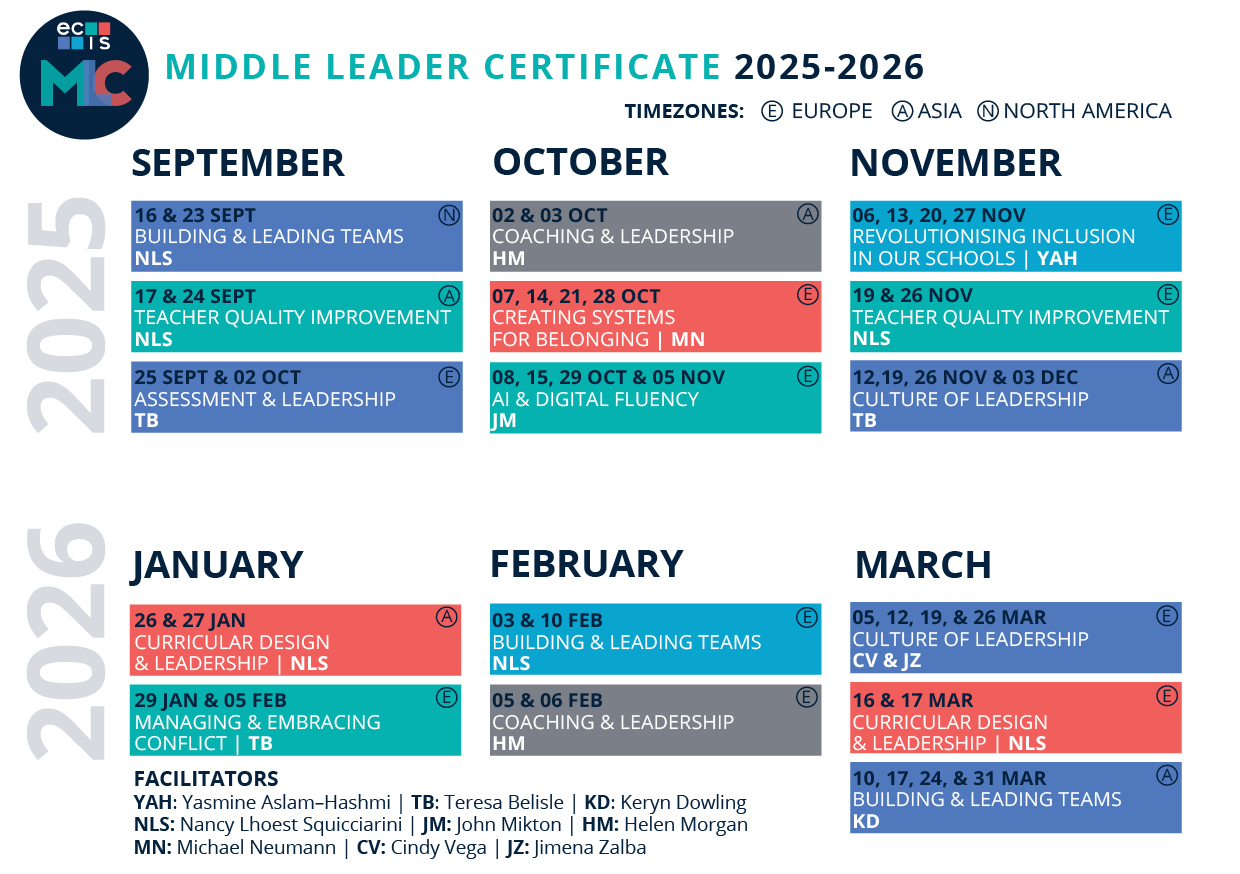


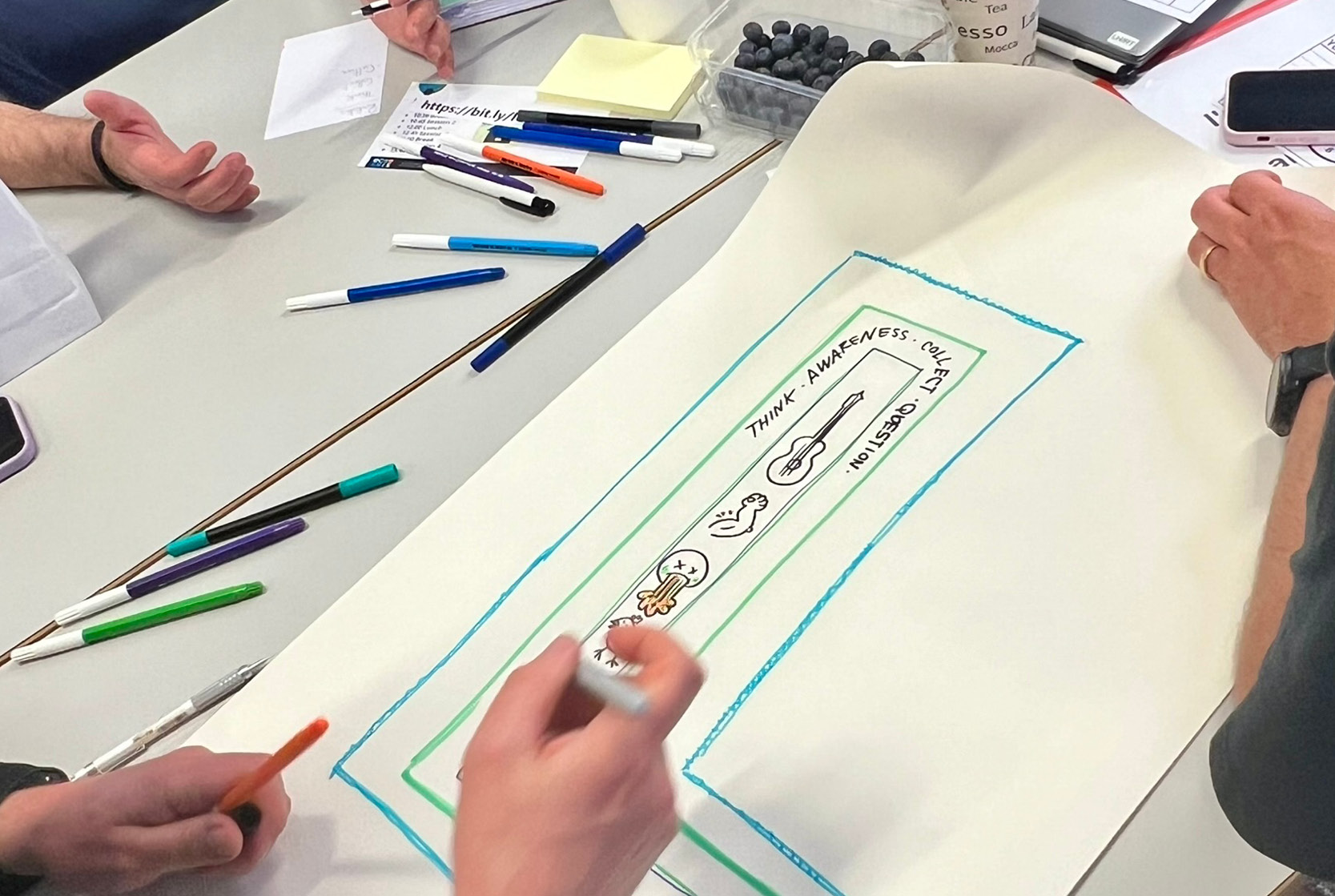
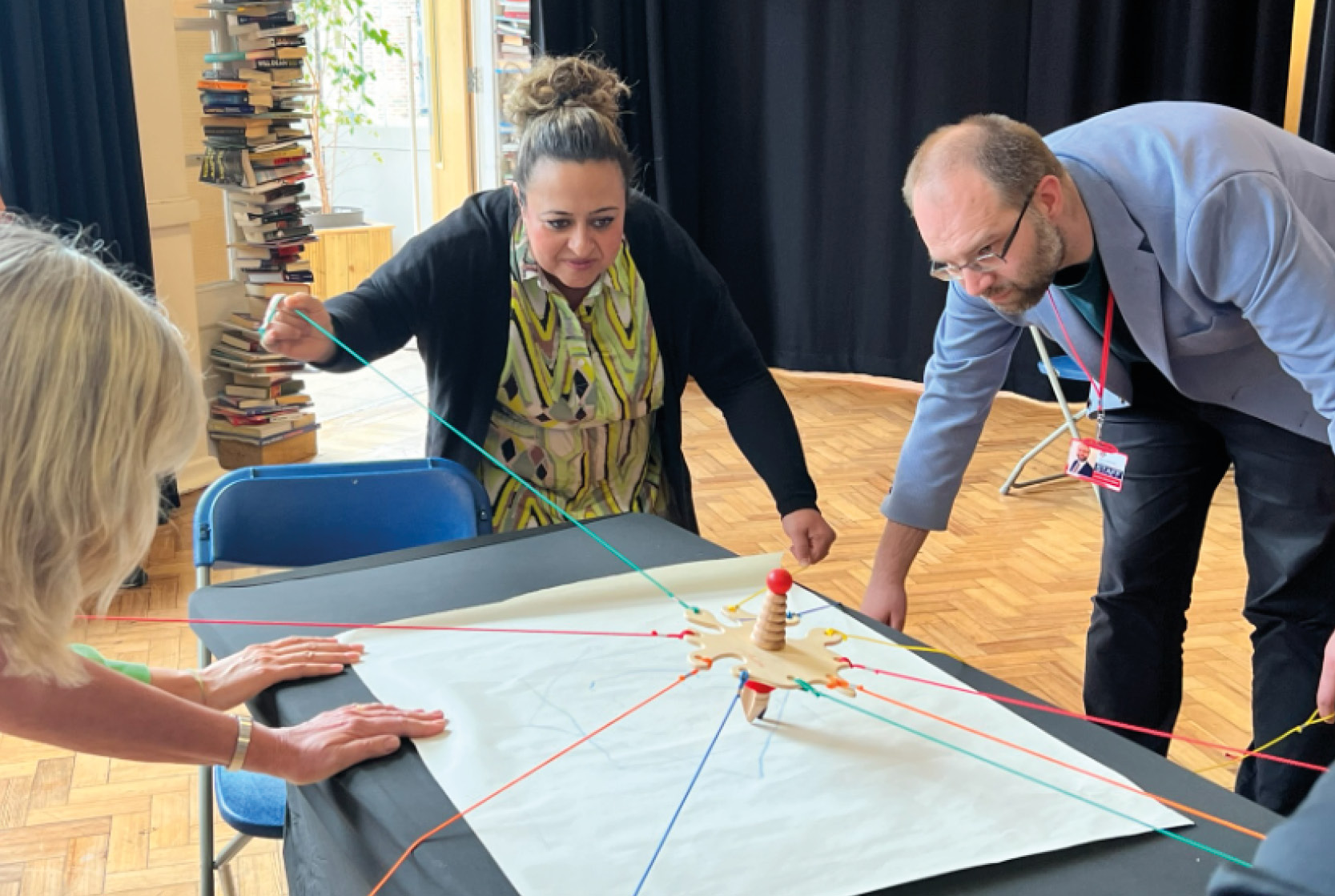






 Jimena Zalba is an experienced and accomplished educational leader with over 19 years serving international schools in the Czech Republic, Romania and Cambodia as a PYP coordinator, Associate Elementary Principal and Elementary Principal. During her tenure as a school leader, Jimena has, in close collaboration with other educators, led the design and implementation of innovative school improvements with a high impact on student learning. When teachers and colleagues describe Jimena, they use words such as ‘caring’, ‘change agent’ and ‘systems thinker’. Jimena leverages these qualities to build and sustain thriving school cultures with a relentless commitment to learning and wellbeing for all. In addition to being a transformational and constructivist leader, Jimena is a passionate and avid learner. She holds a Masters in Education, a Post-Master’s in Educational Leadership and a Doctorate in Education (EdD) in July 2021. Her EdD research focused on developing the professional capacity of educators in international schools.
Jimena Zalba is an experienced and accomplished educational leader with over 19 years serving international schools in the Czech Republic, Romania and Cambodia as a PYP coordinator, Associate Elementary Principal and Elementary Principal. During her tenure as a school leader, Jimena has, in close collaboration with other educators, led the design and implementation of innovative school improvements with a high impact on student learning. When teachers and colleagues describe Jimena, they use words such as ‘caring’, ‘change agent’ and ‘systems thinker’. Jimena leverages these qualities to build and sustain thriving school cultures with a relentless commitment to learning and wellbeing for all. In addition to being a transformational and constructivist leader, Jimena is a passionate and avid learner. She holds a Masters in Education, a Post-Master’s in Educational Leadership and a Doctorate in Education (EdD) in July 2021. Her EdD research focused on developing the professional capacity of educators in international schools. Yasmine Aslam – Hashmi is an international school educator with over 18 years of experience. She has taught in Canada, South Korea, Vietnam and Switzerland where she currently resides. She has taken on multiple roles within schools as an educator, department head, curriculum developer, instructional coach, and academic and action researcher.
Yasmine Aslam – Hashmi is an international school educator with over 18 years of experience. She has taught in Canada, South Korea, Vietnam and Switzerland where she currently resides. She has taken on multiple roles within schools as an educator, department head, curriculum developer, instructional coach, and academic and action researcher. Michael Neumann is the Diversity, Equity, Inclusion, and Justice Coordinator at St. George’s International School in Luxembourg and a co-facilitator of the ECIS DEIJ Leadership Development Cohort. He has worked across primary and secondary settings in roles including homeroom teacher, IT specialist, curriculum coordinator, and assistant principal. His work focuses on supporting inclusive school cultures, developing staff capacity, and integrating equity and belonging into everyday practice.
Michael Neumann is the Diversity, Equity, Inclusion, and Justice Coordinator at St. George’s International School in Luxembourg and a co-facilitator of the ECIS DEIJ Leadership Development Cohort. He has worked across primary and secondary settings in roles including homeroom teacher, IT specialist, curriculum coordinator, and assistant principal. His work focuses on supporting inclusive school cultures, developing staff capacity, and integrating equity and belonging into everyday practice. 